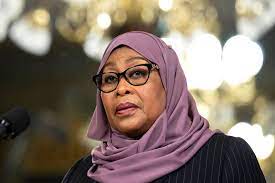|
Getting your Trinity Audio player ready...
|
When African Union member states met in Abuja, Nigeria, in April 2001, they committed to allocating 15% of their government budgets to health. This happened because more resources were required to address the health challenges, including HIV and AIDS, Malaria, and Tuberculosis.
This was an agreement by heads of state of African Union countries as they met and made the pledge towards the health sector. This vow became known as the Abuja Declaration. More than 20 years and the call for “Health For All” is still on as the health space is still under-resourced and underfunded, and the ongoing COVID-19 pandemic has made the efforts made within the health space either slowed down or halted entirely.
Minority groups are the ones that have felt the pinch, especially around sexual reproductive health (SRH) space. SRHR is an issue that affects both genders though women and girls are more affected by the different challenges that they face such as cultural religions and calling for inclusivity, and having no one left behind.
Many SRH conversations have been seen and are still happening on global platforms but not in the local context and thus most do not take local policies and frameworks into account. Recently the ban on girls getting pregnant not allowed back in mainstream schooling was lifted and teenage mothers have now been allowed to go back to school.
This though a great step towards equality, the decree has not been cemented into law. With the increase of teenage pregnancies across the East Africa Community member states, it is time that we consolidate our efforts as a region and as a country to reduce teenage pregnancies. Some of the barriers that women and minorities face in accessing health services are not always medical but are often influenced by social, cultural, economic, and political determinants that require concerted collaboration across sectors in Africa if they are to be addressed.
Deloitte in their report mentioned that the government of Tanzania has allocated TZS, 1109b for the 2022/2023 phase and key areas will be: a) Strengthening vaccines delivery for children under 5 years and b) strengthening the quality of delivery of health services in the country.
This is why EANNASO is calling for increasing the budget allocated to health and in particular for SRH services and commodities. We are calling out to the Government of Tanzania to:
- Increase the budget allocation towards health as per the Maputo Protocol.
- Train healthcare workers and professionals on how to deliver adolescent-friendly services at healthcare institutions.
- Make available and accessible sexual reproductive health commodities and services for adolescents.
- Have adolescents at the decision-making tables so that they are part of the solution.
- Have the return to school decree made by H.E President Samia Suluhu incorporated into the law in Tanzania.
- Having adolescent mothers back to school does not mean we have addressed the issues that face adolescents both boys and girls. We need to ensure Girls and boys are provided with the right age information both at home and in learning institutions so that they do not fall victim to sexual abuse and exploitation.
About EANNASO.
The Eastern Africa National Networks of AIDS and Health Service Organizations (EANNASO) is a regional umbrella body bringing together civil society (CS) and community group (CG) voices to inform policies and improve the programming of HIV, TB, Malaria and other health issues present in the communities. Found in 2002, EANNASO is made up of seven (7) national networks of AIDS and Health Promotion Service Organizations in the following countries (Burundi, Ethiopia, Kenya, Rwanda, South Sudan, Tanzania [Mainland and Zanzibar], and Uganda).






